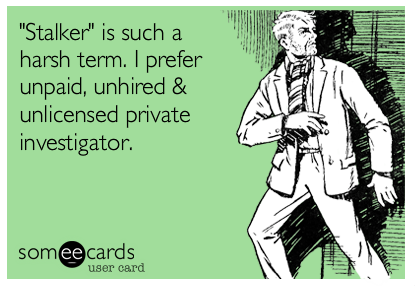|
1. |
Privacy Survival Guide: Take Control of Your Personal Information |
|
2. |
Wireless Communications: Voice and Data Privacy |
|
2a. |
Hang Up on Harassment: Dealing with Cellular Phone Abuse |
|
2b. |
Privacy in the Age of the Smartphone |
|
3. |
How to Put an End to Unwanted or Harassing Phone Calls |
|
4. |
Junk Mail: How Did They All Get My Address? |
|
4a. |
"Shine the Light" on Marketers: Find Out How They Know Your Name |
|
4b. |
Junk Mail FAQ |
|
5. |
Telemarketing: How to Have a Quiet Evening at Home |
|
5a. |
Junk Faxes: No Relief in Sight |
|
5b. |
Frequently Asked Questions about Telemarketing |
|
6. |
Credit Reporting Basics: How Private Is My Credit Report? |
|
6a. |
Facts on FACTA, the Fair and Accurate Credit Transactions Act |
|
6b. |
"Other" Consumer Reports: What You Should Know about "Specialty" Reports |
|
6c. |
Your Credit Score: How It All Adds Up |
|
7. |
Workplace Privacy and Employee Monitoring |
|
8. |
Introduction to Health and Medical Information Privacy |
|
8a. |
Health Privacy: HIPAA Basics |
|
8b. |
The HIPAA Privacy Rule: How May Covered Entities Use and Disclose Health Information |
|
8c. |
The HIPAA Privacy Rule: Patients' Rights |
|
8d. |
Protecting Health Information: the HIPAA Security and Breach Notification Rules |
|
8e. |
Health Privacy outside the Healthcare Environment: Health Records on the Job, Available to the Government, and in Credit Reports |
|
9. |
Wiretapping and Eavesdropping on Telephone Calls |
|
10. |
My Social Security Number - How Secure Is It? |
|
10a. |
Social Security Numbers FAQ |
|
11. |
From Cradle to Grave: Government Records and Your Privacy |
|
12. |
Checklist of Responsible Information-Handling Practices |
|
12a. |
Personal Data Retention and Destruction Plan |
|
14. |
Are You Being Stalked? |
|
14a. |
Security Recommendations For Stalking Victims |
|
15. |
What Personal Information Should You Give to Merchants? |
|
16. |
Employment Background Checks: A Jobseeker's Guide |
|
16a. |
Employment Background Checks in California: A Focus on Accuracy |
|
16b. |
Small Business Owner Background Check Guide |
|
16c. |
FAQ on Employment Background Checks |
|
16d. |
Volunteer Background Checks: Giving Back Without Giving Up on Privacy |
|
17. |
Coping with Identity Theft: Reducing the Risk of Fraud |
|
17a. |
Identity Theft: What to Do if It Happens to You |
|
17b. |
How to Deal with a Security Breach |
|
17d. |
Frequently Asked Questions about Identity Theft |
|
17g. |
Criminal Identity Theft: What to Do if It Happens to You |
|
18. |
Online Privacy: Using the Internet Safely |
|
18a. |
Online Privacy FAQ |
|
19. |
Caller ID and My Privacy |
|
20. |
Anti-Spam Resources |
|
21. |
Children’s Online Privacy: A Resource Guide for Parents |
|
21a. |
Children's Safety on the Internet |
|
22. |
Electricity and Your Privacy: Deregulation in California |
|
23. |
Online Shopping Tips: E-Commerce and You |
|
24. |
Protecting Financial Privacy: The Burden Is on You |
|
24a. |
Financial Privacy: How to Read Your "Opt-Out" Notices |
|
24d. |
Financial Privacy FAQ |
|
24e. |
Is Your Financial Information Safe? |
|
25. |
Privacy Tips for Online Job Seekers |
|
25a. |
Avoiding Online Job Scams |
|
26. |
CLUE and You: How Insurers Size You Up |
|
27. |
Debt Collection Practices: When Hardball Tactics Go Too Far |
|
27a. |
Frequently Asked Questions about Debt Collection |
|
28. |
Online Privacy for Nonprofits |
|
29. |
Privacy in Education: Guide for Parents and Adult-Age Students |
|
30. |
Check 21: Paperless Banking |
|
31. |
Customer Identification Programs for Financial Transactions |
|
32. |
Paper or Plastic: What Have You Got to Lose? |
|
33. |
Identity Theft Monitoring Services |
|
34. |
Protecting Your Telephone Records: Does Your Carrier’s Privacy Policy Ring True? |
|
35. |
Social Networking Privacy: How to be Safe, Secure and Social |
|
36. |
Securing Your Computer to Maintain Your Privacy |
|
37. |
The Perils and Pitfalls of Online Dating: How to Protect Yourself |
|
38. |
A Renter’s Guide to Privacy: What to Know Before You Sign the Lease, While You Rent, and When You Move Out |
|
39. |
Mobile Health and Fitness Apps: What Are the Privacy Risks? |
|
40. |
Bring Your Own Device . . . at Your Own Risk |
|
41. |
Data Brokers and Your Privacy |
 WIRETAPPING*
WIRETAPPING*



















